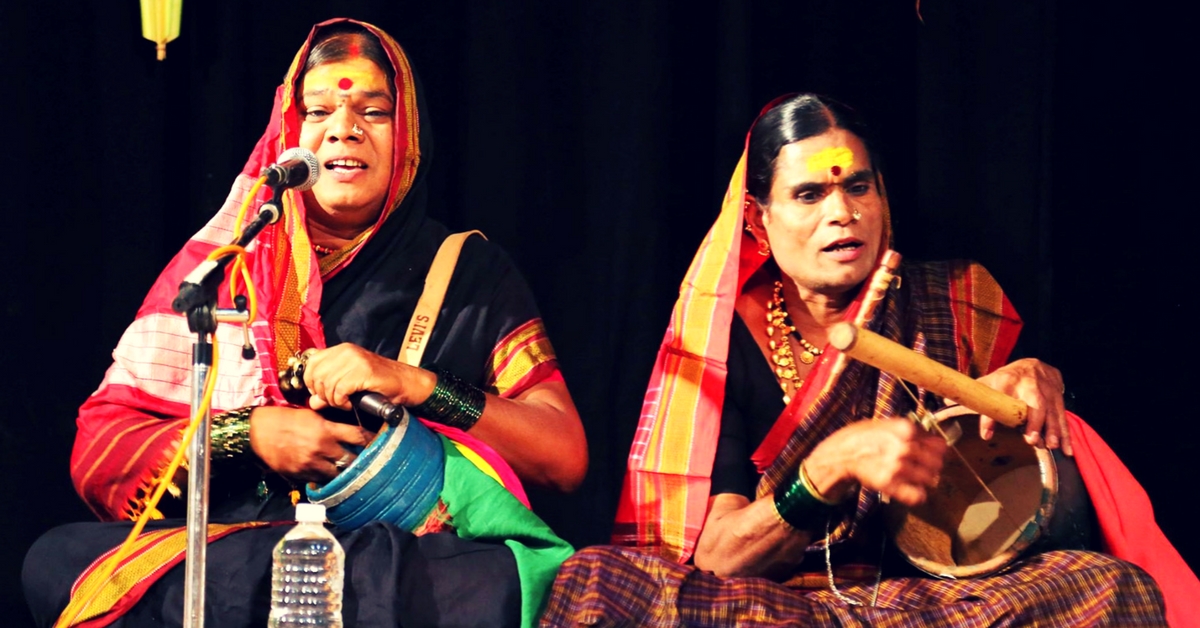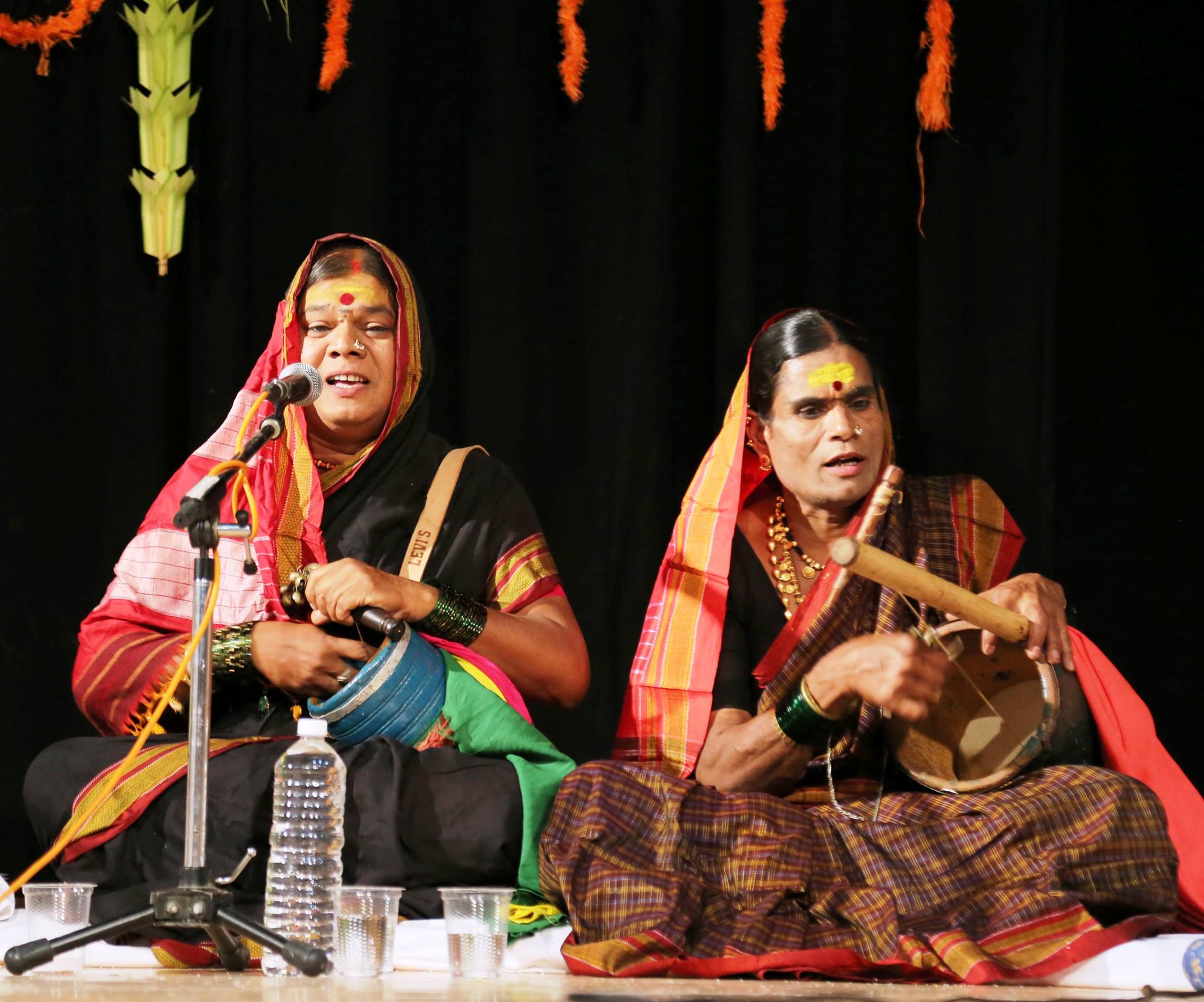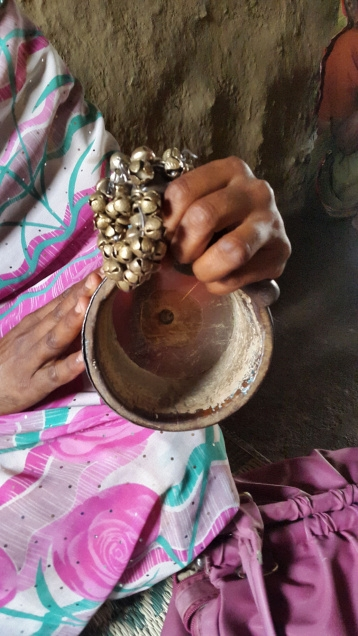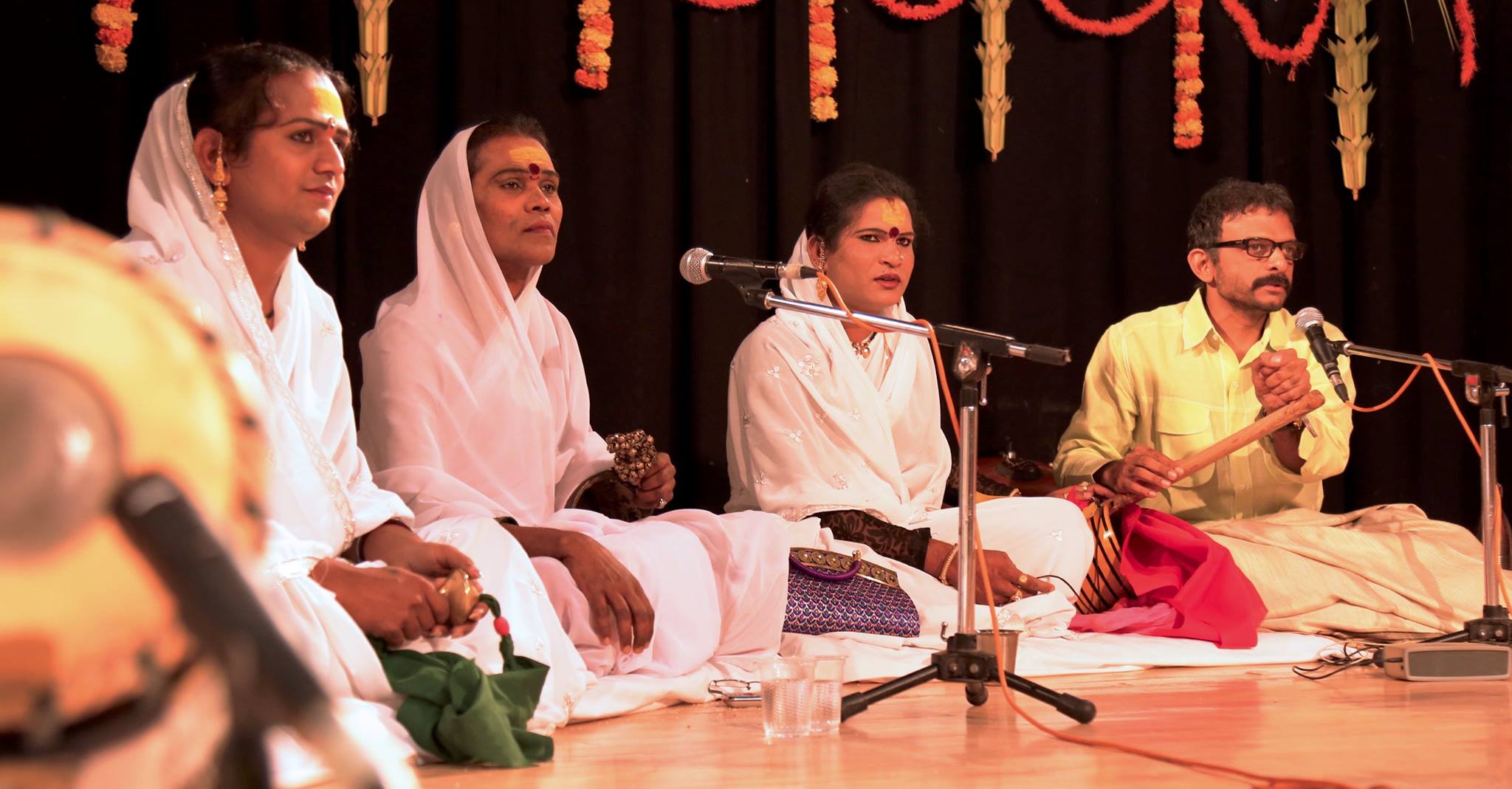Unraveling the Mysteries of India’s Least-Known Transgender Community, the Jogappas
While folklores continue to have an element of extreme bizarreness to them, they certainly don't do enough justice to the vibrant community the Jogappas are!

A devotee of Yellamma, she decorates her forehead by smearing turmeric (Haldi) and vermilion (Kum-kum). Her body isn’t adorned with expensive jewels. Her crown, earrings and necklace are made of cowries.
She sings paeans and bhajans in praise of her goddess. She is a Jogappa.

Her identity is still an intriguing history. A thousand myths surround it, including the one that goes into the folklore of Renuka, the wife of an ascetic sage, Jamadagni. One day, Renuka failed to bring home water from the pond. Aroused by young Gandharva men she saw on her way, the power of her chastity failed to hold the wet clay together to collect water. Angered by her actions, Jamadagni ordered his sons to behead her. She was later revived her by a boon granted to Parashuram, the only son who displayed unquestioning loyalty to the sage.
The other two sons, who refused to behead their mother, were cursed to lose their masculinity because of their ‘cowardice’. That was the day Renuka became ‘Yellamma’ and her cursed sons, the ‘jogappas.’ While folklores continue to have an element of extreme bizarreness to them, this one certainly doesn’t do justice to the vibrant community the Jogappas are!
Read more: This Heartwarming Video Project Captures the Dreams of 6 People From the Transgender Community
Thousands flock to Saundatti temple starting from November to December during the Margasira month of the Hindu Kannada calendar for the Yellamma jatre. This jatre (festival) is an annual celebration for Jogappas in Karnataka. While most people inaccurately describe the Jogappas as ‘hijras’ or ‘eunuchs,’ Jogappas blend in with other transgender communities, but are a separate community altogether.
The Jogappas are one of the least known transgender communities in north Karnataka and parts of Andhra Pradesh and Maharashtra. As most transformation stories documented have it, they are “caught” or possessed by the goddess Yellamma, and regarded as holy women. It’s a gender-fluid world where a person’s early religious background has little significance. The common fibre that hold the stories of these men who marry the goddess to become a woman is the abuse that most face in their families in early childhood due to their effeminate features.
In rural societies though, once the Jogappas climbs the hierarchy, they occupy a respected, priestly position. People seek their blessings, and appease Yellamma through them. To people, they are a direct link between society and the divine.
The Jogappas often clarify that they are not ‘hijras’. They believe their transgender identity is strongly rooted in their devotion to Yellamma Devi. They usually perform at the main temple of Yellamma Devi in Saundatti. In villages, they go from home to home singing bhajans.
Jogappas use three instruments to accompany their music: the choudki, a rhythmic instrument played using a small piece of wood on the inner side (frame) of an open wooden drum; the sutti, an instrument like the ektara, used to maintain pitch; and the tiny cymbals called taal.

The divinity of the Jogappas may be a privilege, but it comes at a price. The practice of nirvana (physical castration), is explicitly forbidden and fined among them. This fine is then equally divided between the Jogappa and the hijra community. There is also a heavy penalty for Jogappas found to be engaging in sex work.
A report titled Jogappa: Gender, Identity and the Politics of Exclusion by Aneka, an organisation that works with sexual minorities, says, “Them being posited as sexually inactive makes it more challenging to reach out to them and offer them HIV preventive services”.
The report also found that a large majority of them do not use condoms or get tested regularly. Being traditional healers themselves, they tend to leave other health issues to natural remedies or prayer.
You may also like: From Being Forced to Beg to a WB Court’s National Lok Adalat Bench – Story of a Transgender Activist
Aneka conducted a year-long research into the Jogappa community focusing on their identity, their relationship with family and society, their tradition, and concerns around livelihood, education, and health etc. It has been observed that right from the onset of their lives, Jogappas face deep opposition and discrimination in many crucial aspects.
With lack of housing and livelihood opportunities, Jogappas live very much in the ‘now.’

This lack of economic opportunities leaves them to resort to singing and dancing as the only means of livelihood. The income is meagre. Bibijaan, one of the five Jogappas selected to perform at a Bengaluru concert with Carnatic music maestro T.M. Krishna, says she earns about Rs. 50 a day. It is only when people invite her group to their homes for jagrata, a night-long invocational performance, the group gets Rs 1,000-1,200. She and the other Jogappas extended their gratitude at being offered the opportunity to share their music. The resulting message of the concert was equality in music with original compositions of the Jogappas of Nipani and Vijayapura in praise of Yellamma, intertwined with Carnatic music.
In the light of the current reforms and policies for the transgender community in states like Kerala, there is some hope for the Jogappas. An equal right to a livelihood and respect in society isn’t too much to ask for.
Connect to Aneka here.
Like this story? Or have something to share?
Write to us: [email protected]
Connect with us on Facebook and Twitter.
NEW: Click here to get positive news on WhatsApp!
If you found our stories insightful, informative, or even just enjoyable, we invite you to consider making a voluntary payment to support the work we do at The Better India. Your contribution helps us continue producing quality content that educates, inspires, and drives positive change.
Choose one of the payment options below for your contribution-
By paying for the stories you value, you directly contribute to sustaining our efforts focused on making a difference in the world. Together, let's ensure that impactful stories continue to be told and shared, enriching lives and communities alike.
Thank you for your support. Here are some frequently asked questions you might find helpful to know why you are contributing?


This story made me
-
97
-
121
-
89
-
167














